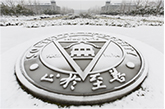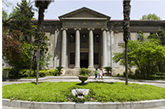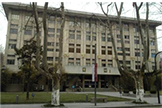
[Southeast University News Network, Jan. 3] (Correspondent: Wang Wei) Recently, the National Natural Science Foundation of China announced the name list of major projects in 2019. The major project named “Theory and Design Method of Magnetic Field Modulation for High-Quality Servo Motor Systems” (Project Approval No.: 51991380) as applied by Prof. Cheng Ming from the School of Electrical Engineering of Southeast University was approved. The direct funding is RMB 20 million.
This project was jointly applied by Huazhong University of Science and Technology, Zhejiang University, Harbin Institute of Technology and Jiangsu University on the basis of Southeast University. The servo motor system refers to the power source and the core moving part applied to high-end equipment in aerospace, high-end CNC machine tools, robots and defense military industry, etc.. There is a large gap between the servo motor systems and the development demands of high-end equipment in China. As a result, the high-quality servo motor systems have become one of the “bottleneck” technologies, which are mainly reflected in the strong multi-field coupling and the complex magnetic field modulations of the servo motor under the interaction of time and space, the dynamically time-varying servo motor system parameters and the difficulty in control quality improvement, many constraints of the servo motor systems and the difficulty in consideration of many design goals. To this end, this project has established a unified theory of motor magnetic field modulation on the basis of thebasic theoretical innovation regarding the servo motor systems so as to reveal the air gap magnetic field modulation mechanism of motors under the interaction of time and space. Thus it proposed a mathematical representation method of air gap magnetic field modulation, which has identified the magnetic field modulation topology evolution rules, established the multi-factor coupling analysis method of the motor system under complex working conditions to realize high-quality dynamic control of the servo motor systems, proposed the hierarchical theory of motor systems and constructed a comprehensive design method of high-quality servo motor systems, and finally formed the basic theories and technological systems of high-quality servo motor systems. All of these have enhanced the innovation ability of electrical system research in China and provided technical support for the development of high-end equipment.
Prof. Cheng Ming has been engaged in basic theoretical and technical researches on motor systems and control for a long time. He has undertaken more than 60 research programs including national 973 programs, national 863 programs, key programs of the National Natural Science Foundation and major international (regional) cooperative research programs, etc.. Up to now, he’s published more than 400 journal articles, of which more than 220 were included in SCI in addition to 5 monographs and textbooks. Since 2014, he has been continuously ranked in Elsevier’s China Highly Cited Scholars List; more than 130 invention patents, 5 PCT patents and 3 software copyrights have been authorized. In addition, he’s won the second prize of National Technical Invention as the first person-in-charge, the first prize of Jiangsu Science and Technology, the first prize for natural science by the Ministry of Education, the first prize for science and technology by China Machinery Industry, the patent inventor of Jiangsu Province and other academic awards; he was elected as the first IEEE Fellow and IEEE IAS Distinguished Lecturer in the field of electrical system and control in mainland China.
The establishment, demonstration and screening of major projects of the National Natural Science Foundation of China is very rigorous and the competition is rather fierce. The approved projects and research teams have to be widely recognized by authoritative experts in this field and experts from other disciplines of the faculty. This project is the third major project of its kind as initiatedby our school that has been supported by the National Natural Science Foundation of China.
Submitted by: the Scientific Research Institute of the School of Electrical Engineering
(Editor-in-charge: Wu Chan, reviewed by: Song Xiaoyan)
















